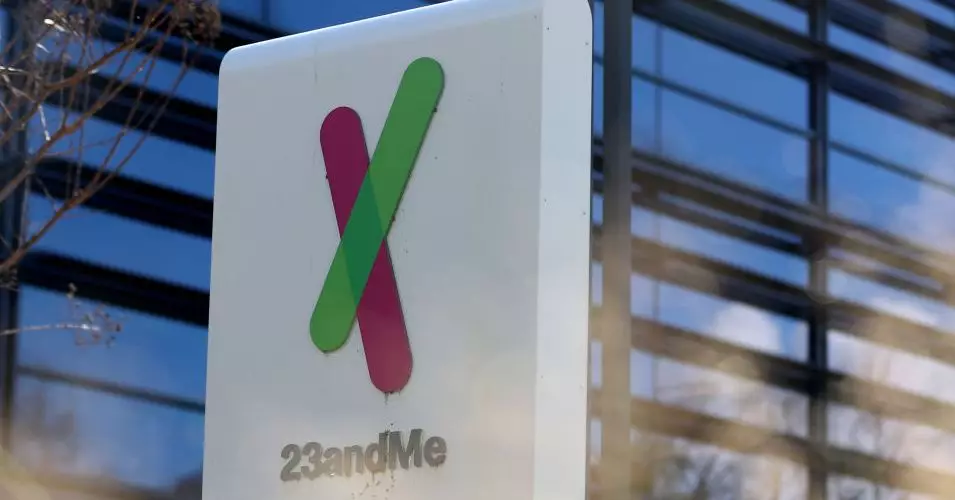Once a beacon of innovation in Silicon Valley, 23andMe skyrocketed to a staggering valuation of $6 billion, capturing the public’s imagination and trust with promises of personalized genetic insights. However, the company’s recent decision to file for Chapter 11 bankruptcy protection highlights the volatile nature of the tech and biotech industries. With CEO Anne Wojcicki stepping down after a series of missteps, the fate of the company is uncertain. More than just a financial failure, this situation poses a significant risk to personal genetic data that many users have entrusted to 23andMe.
The collapse of such a prominent genetic testing firm raises critical questions regarding privacy and ownership of personal data. Consumers often operate under the assumption that their information is secure and well-protected, only to find themselves exposed to risks when organizations go through transitions—be it mergers, acquisitions, or, as seen here, bankruptcy.
The Dangers of Data Entrustment
Privacy advocates have long warned about the precarious balance between the potential benefits of genetic testing and the inherent risks that come with entrusting personal information to companies. The recent developments surrounding 23andMe underscore these concerns. For many, the allure of discovering ancestry and health predispositions may overshadow the potential dangers of their data ending up in the wrong hands.
As California attorney general Rob Bonta pointed out, Californians have the legal right to request deletion of their data from businesses. Yet, those protections are not universally applicable. Outside California, customers may find themselves with scant protections, leaving them vulnerable in a landscape devoid of comprehensive health privacy legislation at the national level. The urgency to secure one’s data is palpable; consumers must be proactive in managing this risk.
What Can Consumers Do? The Call to Action
Given the rising tide of uncertainty, it’s critical for current 23andMe customers to take immediate action to safeguard their sensitive information. Anyone who has shared their DNA data with the company should consider downloading their genetic information and subsequently seeking to delete their account and data. The process is straightforward: Users can log into their profiles, navigate to the Settings, and follow the prompts to delete their information permanently.
Such actions may seem simple, yet they are a vital step in the protection of personal data. Even if customers have complied with previous company policies, they must prepare themselves for the fact that a new owner may change these protections or treat existing data differently than intended. As noted by John Verdi, senior vice president of policy at the Future of Privacy Forum, the data now held by 23andMe is governed by existing contracts, but there’s a profound lack of reliability in trusting that those agreements will remain intact in future ownership scenarios.
For Your Privacy’s Sake: Insights from Experts
Experts in data privacy, including Kenn White, have expressed skepticism about the efficacy of current privacy policies, believing they may be inadequate to protect the average consumer in this fast-evolving landscape. The implications of a corporate acquisition or bankruptcy can create a breeding ground for data exposure that consumers cannot control. Given this landscape, White’s advice resonates: “Request your data be deleted as soon as possible.”
This precarious moment in 23andMe’s history serves as a wake-up call for all consumers engaged with digital services that collect sensitive health information. Whether it is genetic data, medical history, or even just personally identifiable information, there is an urgent need for legislative frameworks that address the complexities of digital health privacy, especially as we navigate a world increasingly reliant on technology.
The Future of Genetic Data Ownership
As the narrative surrounding 23andMe unfolds, it highlights a more significant conversation about genetic data ownership and consumer rights. The ongoing evolution of these rights must be at the forefront of public discourse. Transitioning data between owners should not strip users of their rights to control how their information is used, stored, or shared.
As we move forward, it’s essential for policymakers, businesses, and consumers alike to consider the ethical ramifications of genetic data use. Years of progress in understanding genetic predispositions should not come at the cost of individual privacy. Building a more secure and transparent data landscape will ensure consumers maintain trust in the organizations with which they choose to engage. With technology advancing at breakneck speed, the onus lies on us all to ensure that personal freedoms are preserved in the name of innovation.

